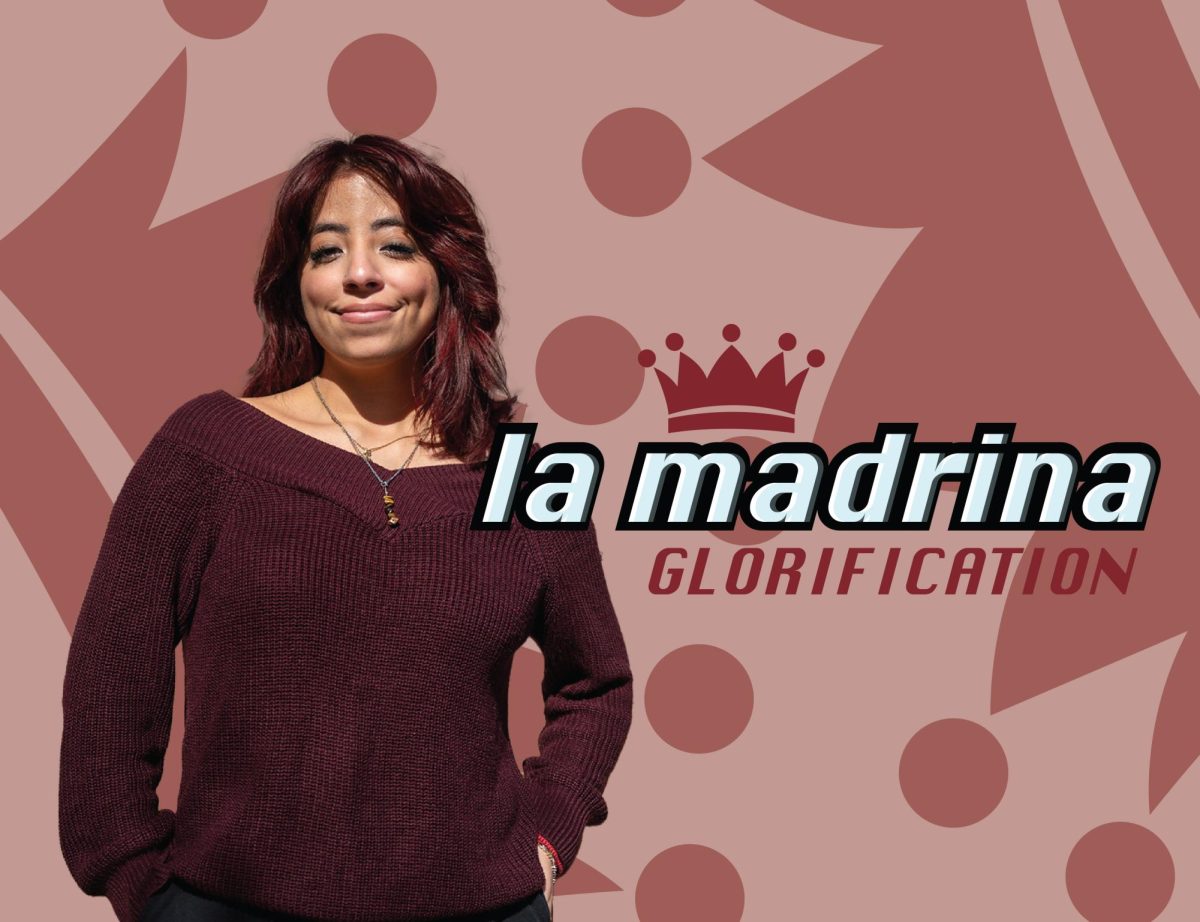Griselda Blanco dominated Miami’s economy and society in Florida, from the late 1970s to early 80s. She was called the “Godmother” and “Black Widow.” She is often referred to as the “only man” Pedro Escobar was afraid of. Netflix recently released “Griselda,” which was inspired by Blanco’s life and represented the times of the drug scene in Colombia and Miami’s history. Yet, somewhere along the lines, aspects started to get blurry in ways of perception, glorification, and misrepresentation of Latin America and Colombians.
Chicano Studies student, Leslie Lee, says she enjoys seeing light being shed on the Latinx community and letting people know there is more to the community than the story of “Griselda.”
“Hollywood is just starting to display individuals in the Latinx community. I think it is important to remember that Colombia is not Griselda Blanco,” Lee said.
Lee explains how she sees the show for entertainment purposes, but also says it is important to understand the destruction and corruption she has had on real lives.
“Educating ourselves about the harms as well as benefits of sharing stories like Griselda’s is crucial in properly digesting media,” Lee said.
Even Latina, Estefania Pessoa, known as the internet’s big sister, as “hellotefi,” shared her input on “X.”
“Colombian’s history is vast and at times heart wrenching… to define Columbia for its drug war is unfair, superficial and close minded,” Pessoa said.
Pessoa’s passionate words did not stop there, she furthered her emphasis on this topic.
“This is not a story of a mother, trying to survive, this is a story of greed, murder, hunger for power and drug induced psychosis,” Pessoa said. “I do not know one Colombian living and breathing today that has not been directly affected by violence and feared people like Griselda inflicted upon communities she touched.”
She ends her opinion, saying “Latinos- we have many more stories to share than just these.”
Both “Griselda” and Netflix’s “Narcos” were directed by Andrés Baiz. The older generation of Hispanics points out; where do you think Hollywood gets their inspiration from? It is not completely fictional. They say that they cannot blame entertainment for taking bits of our history, but the misrepresentation of this type of lifestyle and personas; it is something to not be glorified.
“Whether the film or show is based on fictional or true events, it doesn’t give them a right to flip the narrative to paint us horribly and then it is us that have blood on our hands once again” says the generation that was living in the same timeline as Blanco.
The movies that correctly represent Hispanic and Mexican cultures, like “Coco,” “Encanto,” and “Blue Bettle.” Helps the family-oriented structure of Hispanics. Then Hollywood comes out with “Narcos” and then “Griselda,” what will be next?
I believe that this time in history, whether the origin is from Columbia, Cuba or México, does not define a country, and its people. As a Hispanic woman, I would like to see more character of spirit, courageousness and more importantly heart from my heritage. We are so much more than the trauma that we have endured from previous generations. For Hollywood and entertainment to often rewrite that narrative of glorification and total misrepresentation of who we are because of our background, ethnicity and our name- I, for one, do not shift that perception of myself and my family.
Unfortunately, as a society, we often get pulled into the reins of fixating and infatuation on the idea of a woman fighting for her place in a male dominated drug industry. This molds a certain perception of Blanco by Hollywood’s hand by having quotes like, “how did she walk?” asked the detective, witness answers, “como la jeffa”- “like a boss.” Not to mention, the phrase: “a woman of substance.” on the cover of “Griselda,” shifts the focus of you must be like Blanco to be “of substance.” – to add value to the world. The reality of it is that she was not only “The Godmother” of this industry, but she was the power at hand to make it all happen- that was the “substance” referred to.
What keeps me up at night is to think our younger siblings and family members; the generation of now, our people that will take care of us when our generation gets old: they look at shows like this and think, “that is all we are made of.”
Dominique Macias is a contributor and may be reached at [email protected]








